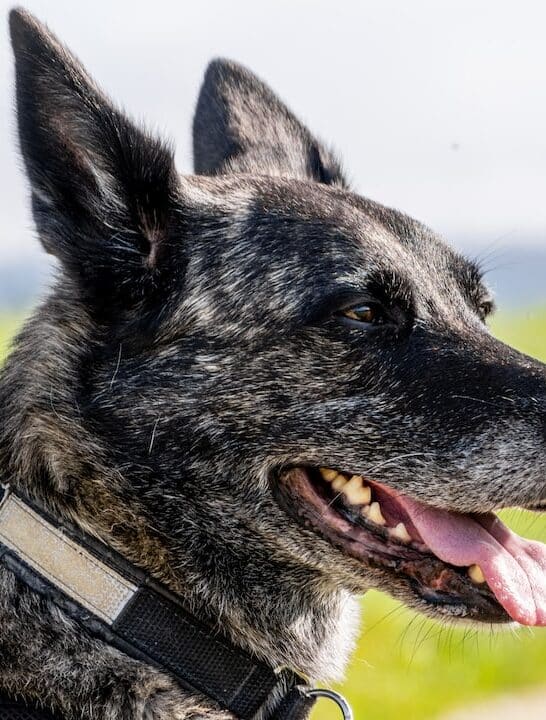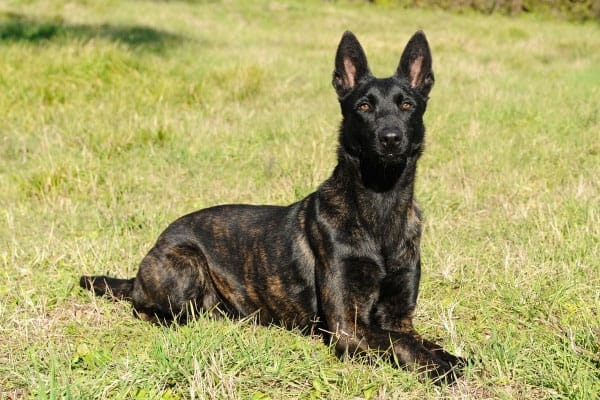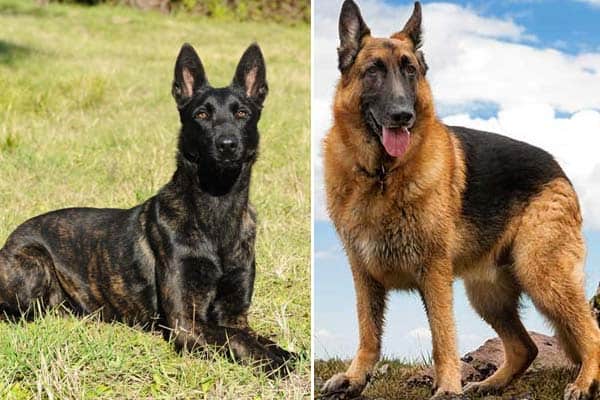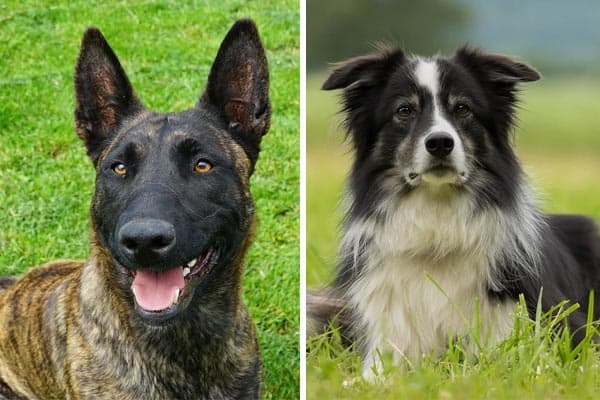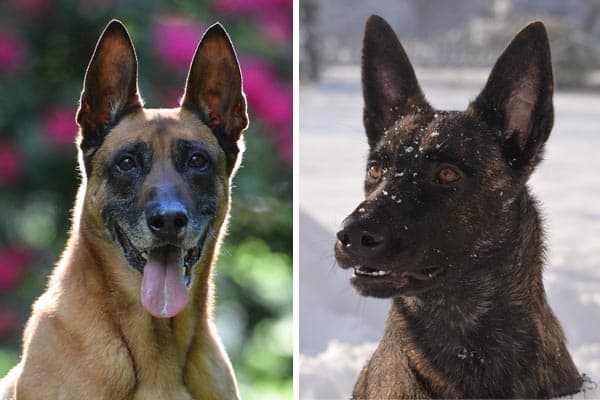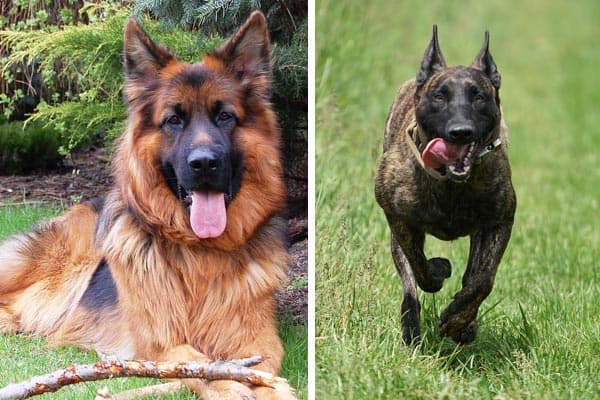Do Dutch Shepherds Smell: What to Expect With Your Dutch Shepherd Dog’s Coat
The Dutch Shepherd is not one of the better-known dog breeds. This natural dog breed hails from The Netherlands and has a long and noble history of working alongside people to herd and guard livestock.
Some people get confused when they are learning about the Dutch Shepherd breed because this dog actually can have three different coat types. Each coat type can make the Dutch Shepherd look like a completely different dog!
The striking difference from a short-hair to a long-hair to a rough-hair coat Dutch Shepherd can also bring up questions about “doggy odor.” Do Dutch Shepherds smell? Will it take a lot of bathing, grooming, and coat maintenance to take care of this dog?
If this question has been on your mind, you have found the right article to read. We will go into depth here about the Dutch Shepherd coat types and whether Dutch Shepherds smell or not.
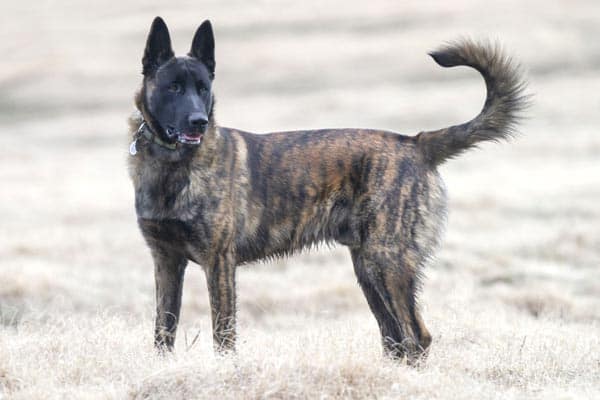
Meet the Dutch Shepherd: A Natural Dutch Dog Breed
As the American Kennel Club (AKC) points out, the Dutch Shepherd is a sheep and livestock herding dog that is built to work.
These dogs fall into the AKC’s “miscellaneous” class because they are relatively new to being registered purebred dogs in the United States. But they are not a new dog breed – far from it.
The Dutch Shepherd takes its name from its homeland and its main job description. These dogs are medium to large in size, weighing 42 to 75 pounds and standing 21.5 to 24.5 inches (paw pads to shoulders) when fully grown.
They are lean and rangy and incredibly fast and light on their feet. They specialize in herding livestock and running off predators. They can also do a wide variety of other jobs to help keep a working farm running smoothly.
The Dutch Shepherd is literally tireless and can work all day long running and herding and jumping and protecting their animals and people without tiring. Which brings us to the central question of this article – do Dutch Shepherds smell?
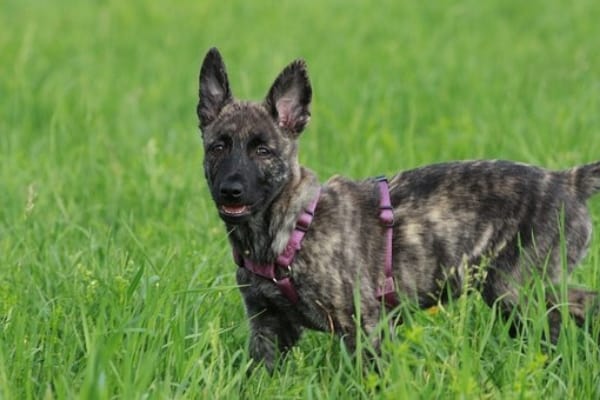
Do Dutch Shepherds Smell? No, They Don’t – At Least Not Typically
Even though Dutch Shepherds are incredibly athletic and agile and are tireless workers, they typically do not have any kind of strong odor.
As this Dutch Shepherd owner forum thread illustrates, when a Dutch Shepherd does start to exhibit a strong or noticeable odor, this is typically a sign that something is amiss.
There are a variety of reasons that may cause a Dutch Shepherd to smell. Most are related to behavior or health. Poor coat maintenance and bathing may also cause a Dutch Shepherd to develop an odor that is unpleasant.

The Main Reasons a Dutch Shepherd Dog Might Smell
The main reasons that might cause a Dutch Shepherd to smell bad or “off” relate to health and wellness.
As PetMD explains, the doggy odor should never be ignored. This is especially true if you have a Dutch Shepherd, a breed that typically does not have a strong smell.
These are the main reasons why a Dutch Shepherd might start to smell.
Anal glands
The anal glands are small sacs on either side of the tail. Over time the sacs can fill up with material that has a very strong unpleasant odor.
The anal glands can get blocked or infected and this makes the smell even worse. Having the anal glands expressed (or learning to do this yourself if you can stomach it) usually takes care of the smell.
Infection or allergies on skin or ears
If you have ever heard the term “Frito Feet” you already know one of the trademarks smells that a yeast infection can cause.
Yeast, bacteria, and fungal organisms can invade the feet, the ears, the skin, and other areas and cause various health symptoms, including a bad odor.
Dutch Shepherds that have allergies to pollen, food, or other environmental triggers may also develop an infection with a noticeable odor.
Dental problems
“Doggy breath” can definitely be one of the less-beloved aspects of living with a pet dog. But if your Dutch Shepherd’s regular breath gets worse, this can be a sign of cavities, gingivitis, or periodontal disease.
Rolling in something (or eating something yucky)
No matter how much expert research is done in this area, experts still disagree on the main reasons why dogs roll in yucky things they find on the lawn.
In the same way, some dogs tend to eat poop (coprophagy) more than other dogs.
Both issues can cause your dog to smell very bad!
Wet dog
The smell of “wet dog” is so distinctive it ranks right up there with doggy odor and doggy breath. Thankfully, this smell usually dissipates on its own as your dog dries off.
Digestive issues
Dogs that have digestive trouble may pass a lot of gas that stinks. Some dog breeds are known to pass lots of gas regularly. Other breeds don’t have a lot of natural flatulence. The Dutch Shepherd is in this latter group.
If your dog does suddenly starts to pass a lot of gas, this could be a sign they have eaten something that disagrees with them or even something toxic. A visit to the veterinarian is always in order when this happens.
Coat needs grooming
Yet another reason why a Dutch Shepherd might start to smell is when the coat needs to be brushed and groomed. This is especially the case when shedding gets intense and can be more prevalent with some Dutch Shepherd coat types.
The Three Dutch Shepherd Coat Types: Short-Hair, Long-Hair, and Rough-Hair
As the United Kennel Club (UKC) explains, the Dutch Shepherd dog breed has naturally evolved to inherit one of three different coat types: short-hair, long-hair, or rough-hair.
Each of these three coat types requires a different type of grooming and care. This helpful short YouTube video shows you what each coat type looks in a Dutch Shepherd’s puppyhood and as an adult dog.
All three coat types will shed all year long and more heavily when the seasons change from warm to cold and from cold to warm.
The short hair coat type is the easiest to brush, groom, and maintain and is generally the least likely to smell.
The Dutch Shepherd’s long hair coat type requires the most maintenance and can be more prone to odor because it is more likely to trail in things or get debris trapped in the long hairs.
The rough hair (or wire hair) coat type requires the least maintenance and tends to be “wash and wear” – it has more of a curly look to it and will do the least amount of shedding except during the “coat blow” seasons each year.
Dutch Shepherds don’t typically need a lot of bathing except when odor becomes noticeable. Because of this, however, it is very important to first determine why your dog smells bad before simply assuming it is time for another bath.
If you are sensitive to “doggy odor,” a Dutch Shepherd may be a great choice for a companion canine – that is, as long as you can give these active dogs the exercise they crave.
By taking the time to learn what types of issues can cause a Dutch Shepherd to smell, you can take action right away if your dog starts to have an odor you don’t usually smell and do not recognize.
























